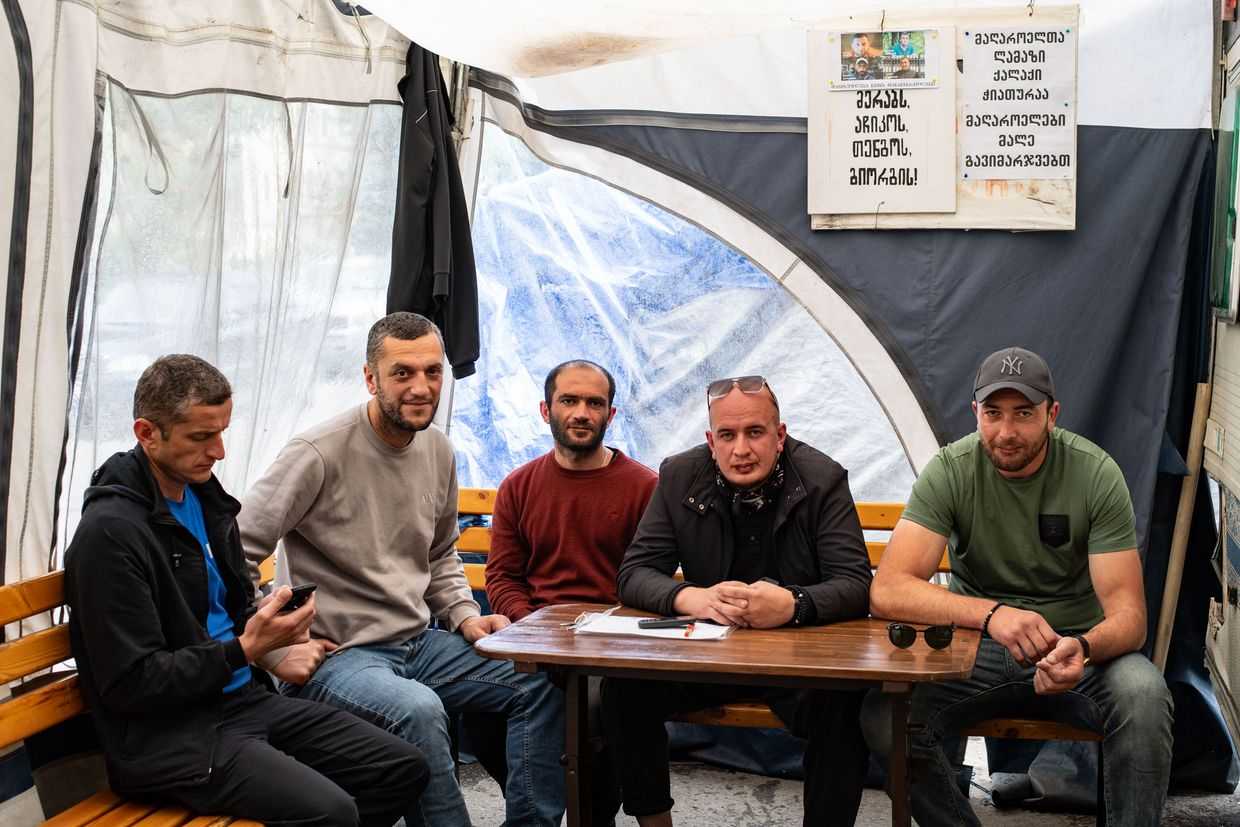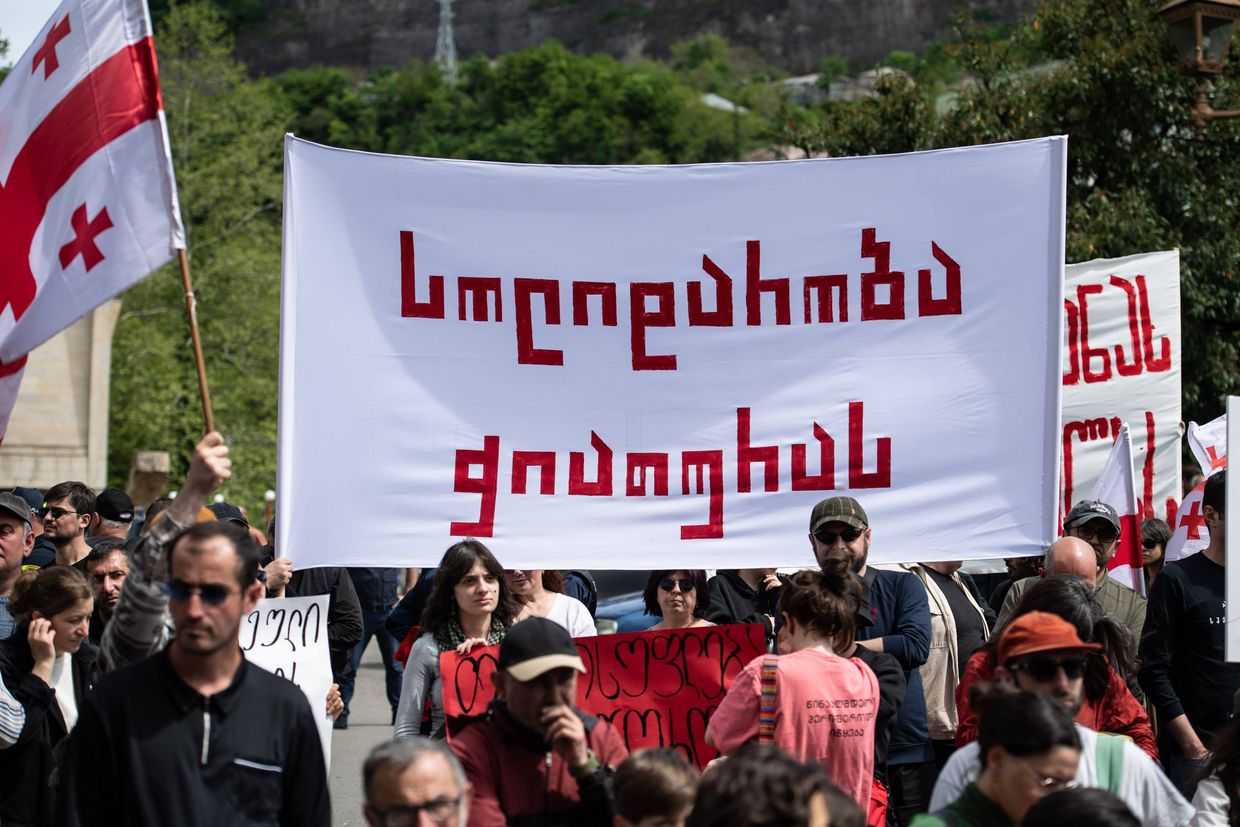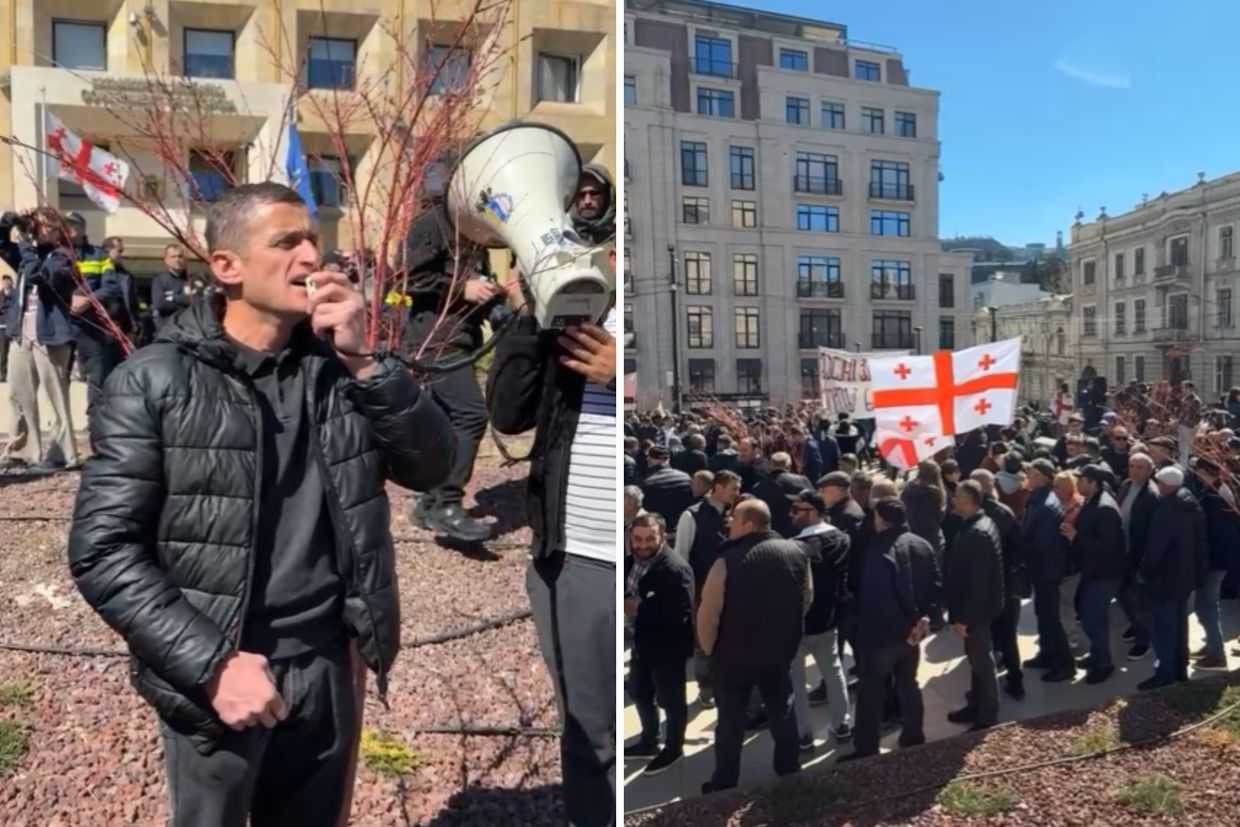
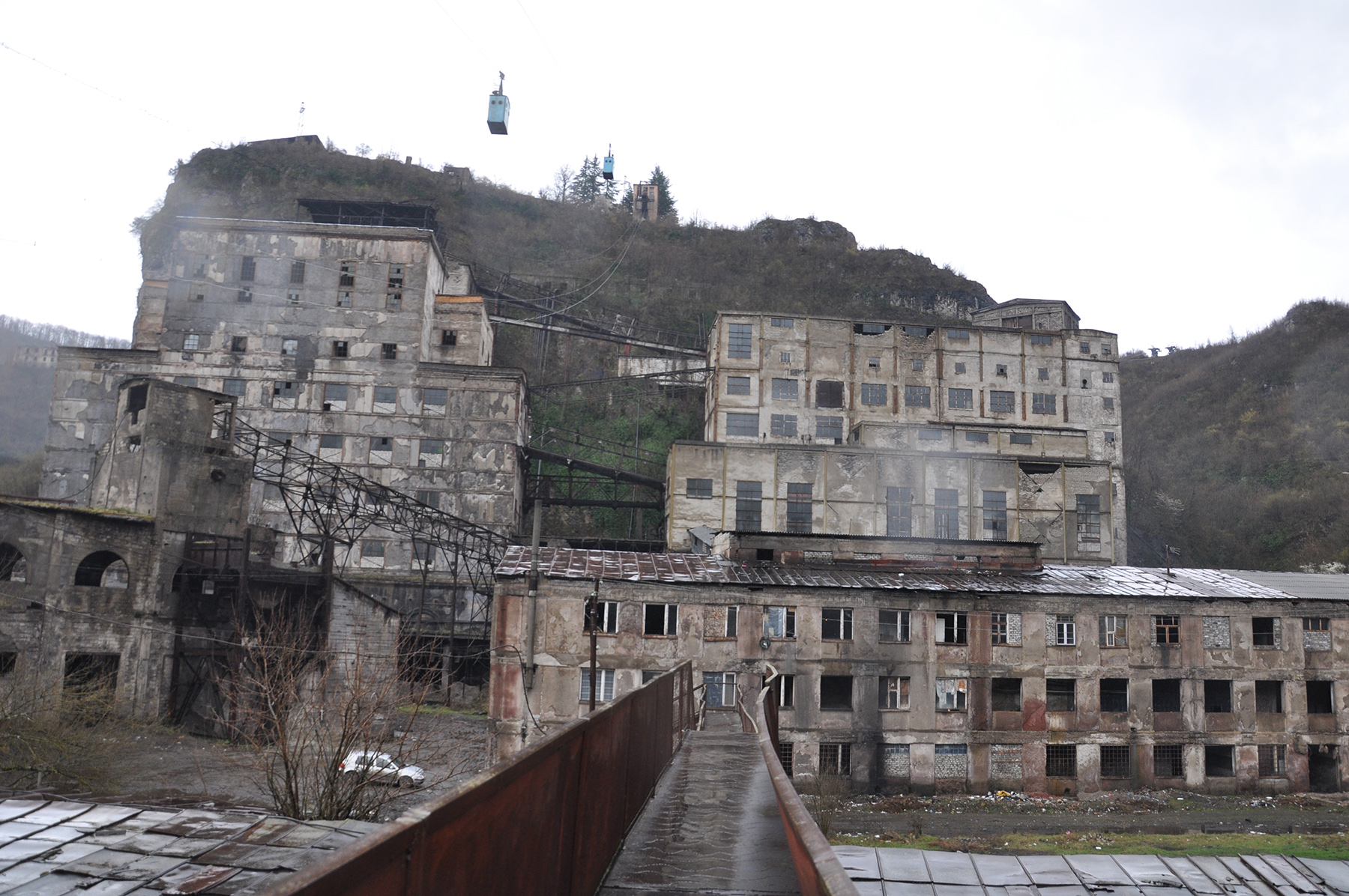
After starting a sudden and unsanctioned strike earlier this month, miners in Chiatura stitched their lips together to demonstrate how much their hazardous occupations cost.
Around 3,000 mine workers went on strike in the industrial City of Chiatura, in western Georgia, earlier in May. They worked for Georgian Manganese LLC, the largest employer in the ore-rich but otherwise poor dust-covered city, a city where the river has turned black due to manganese contamination.
Numerous workers have died in these mine tunnels over the years in work-related accidents, and many of those who remain describe their jobs as ‘slavery’. They say they fear for their lives and their families’ health but need to make ends meet.
A protest that started among 150 ‘special regime’ miners on 15 May spread quickly to the whole workforce. On 27 May, the 11th day of a hunger strike by workers, shops were closed and schools were left idle as thousands of local residents, including school children, joined a solidarity march through the city.
It was a wildcat strike — it was not initiated by the unions and workers did not go through the legally mandated three-week mediation process with the company before walking out suddenly. As such, the company has threatened to sue the workers, but they continued their strike nonetheless.
A protest spoken through sewn lips
Gela Badzgaradze, 33, sat in a yellow tarp tent set up in the town centre, a few metres away from the Georgian Manganese office. It had been 8 days since he, together with fellow miners, had began a hunger strike when OC Media spoke with him.
He works for Georgian Manganese, a controversial mining company that acquired a 40-year mining license for the city in 2006.
‘They’re making millions and paying us only peanuts — we work like slaves. This is what triggered the strike and if our demands are not met, we will sew our lips shut’, Badzgaradze told OC Media on 22 May. The following day, one worker did just that and another followed suit the next day.
The protest started on 15 May after workers were served a poor meal, ‘a bone covered in fat’, 29-year-old Temur Shekiladze told OC Media. He had worked for the company for 9 years in different positions before being let go; he did not specify the reason why.
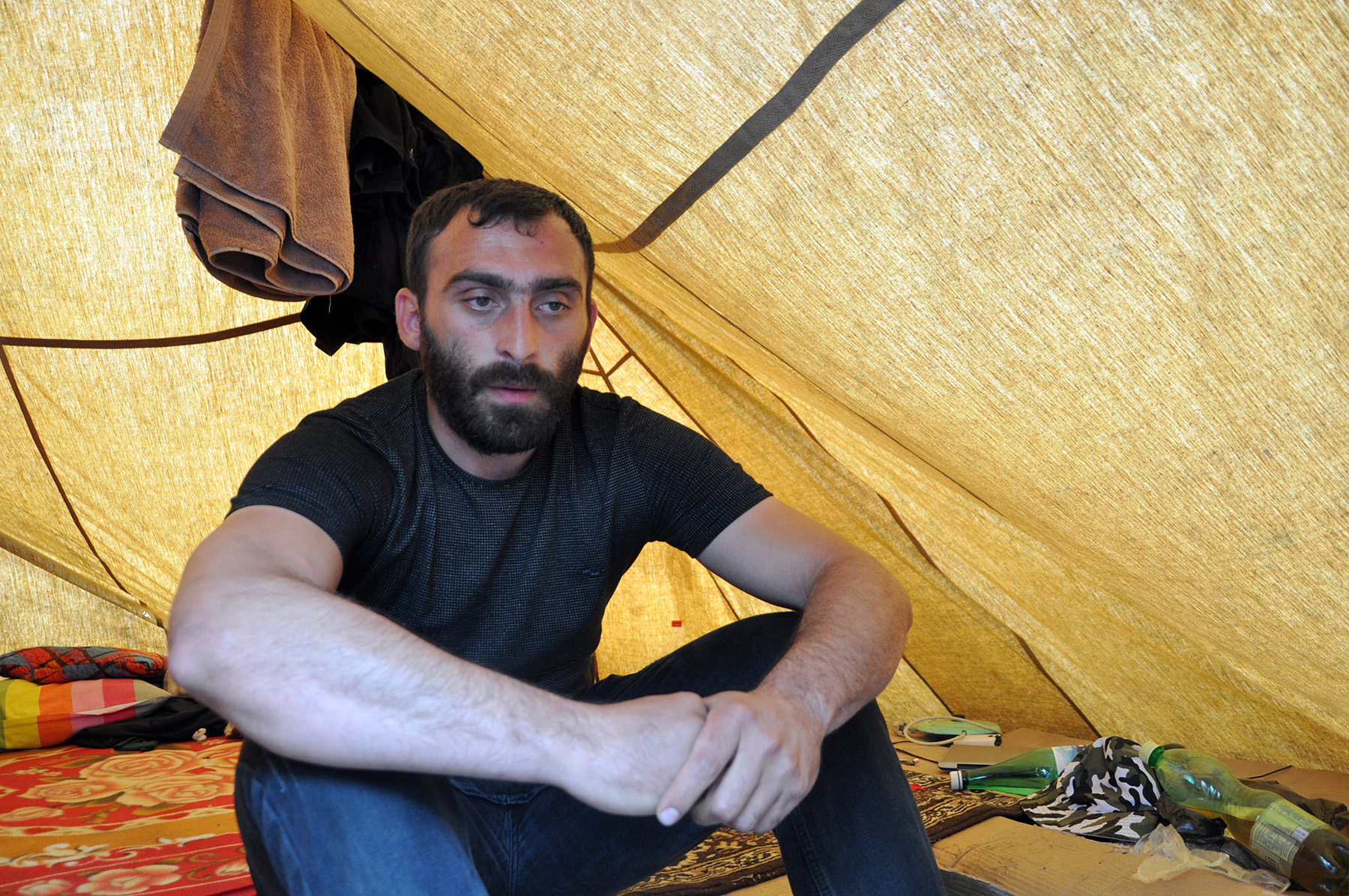
‘Chiatura looks like a dumpsite today. The company is ready to do everything for the sake of the manganese. The workers were served stinky bones, this is what triggered the protest. They are demanding a 50% raise — ₾600 ($215) more — and the company doesn’t want to pay it while their own salaries are dozens of thousands per month’, said Shekiladze.
The protest started with 150 ‘special regime’ miners — miners who work 12–hour shifts for 15 days straight, with only a single 15-minute break per day. While for half of the month they do not work, during their 15 days on duty they are barred from leaving the company-run barracks during their 12 hours of downtime.
Even those who live a 10-minute walk from the mine are not allowed to spend the night at home unless there’s an emergency.
Workers spending the night are provided with food by Georgian Manganese. The Head of Personnel Department of the company, Irakli Petriashvili, told journalists there had been problems with the food in the past, such as serving it late or insufficient portions, even several cases of food poisoning, but ‘nothing so severe as to be reprimanded [by the quality control services]’.
How much does a hazardous job pay?
Guguli Tsutskiridze serves food to workers at the barracks. While she’s officially employed as a nurse for the company, this earns her only ₾220 ($80) per month, so she serves food for an additional ₾50 ($18). ‘I serve so many portions per day, for each one I make only 3 tetri’, Tsutskiridze told OC Media.
Lali Khvedelidze has been working as a cable-car signals operator for 14 years. Her salary is around ₾300 ($110) per month, sometimes even less. She also doubles up as a cleaner, for which she is not paid extra.
‘The company said our salary budget is ₾3 million ($1.1 million). Don’t they have to raise our pay with inflation? They did raise their own salaries’, said Khvedelidze.
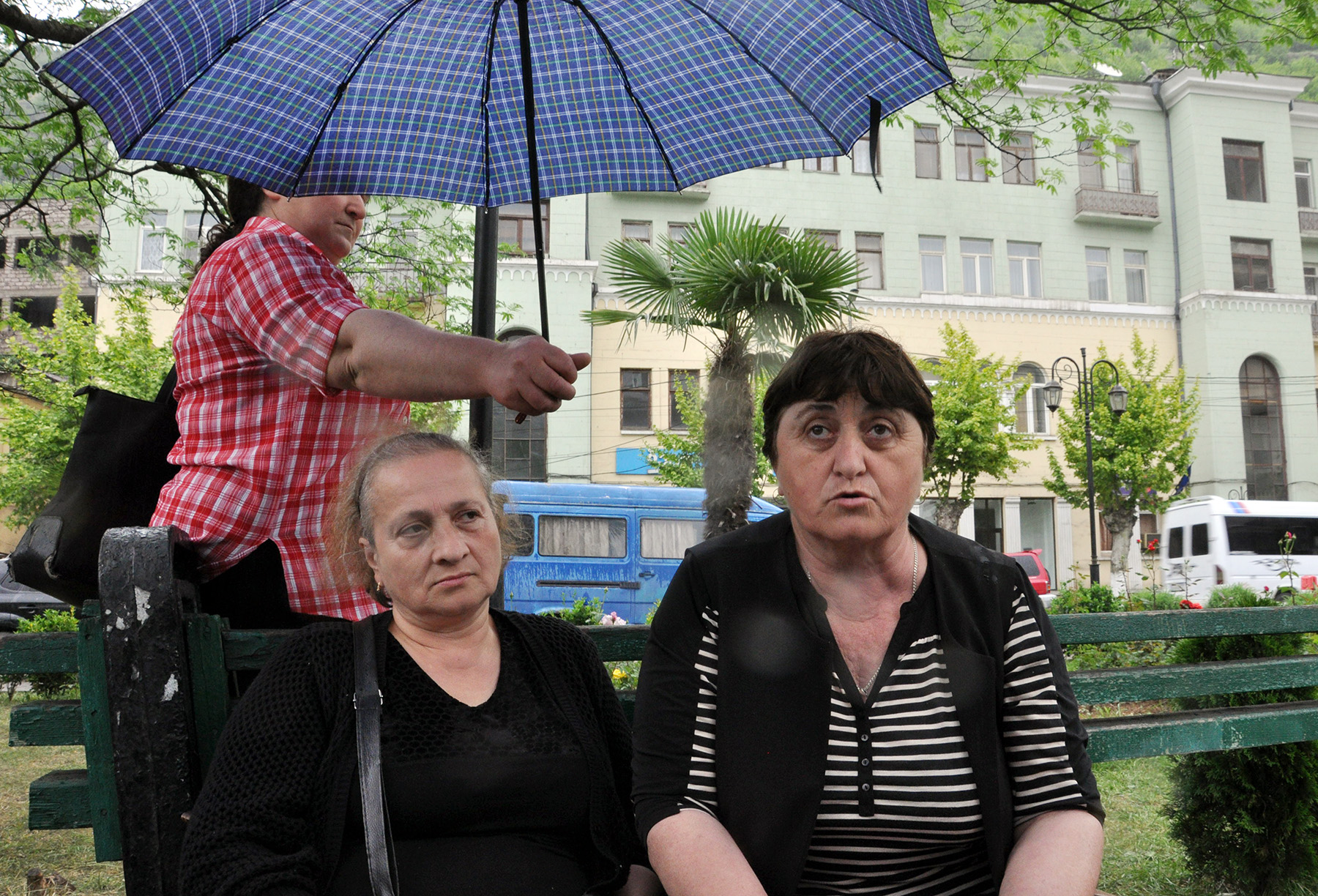
Georgian Manganese is owned by Georgian American Alloys, a company headquartered in Florida which claims to be one of the largest employers in Georgia, with up to 6,000 employees. Their webpage says the company has a turnover equal to 10% of Georgia’s total exports.
The National Statistics Office of Georgia includes Georgian Manganese among the top 50 companies in terms of foreign investments.
According to Irakli Petriashvili, Georgian Manganese spends almost ₾3.8 million ($1.4 million) every month on workers, including on salaries, transportation, food, and insurance for them and their families.
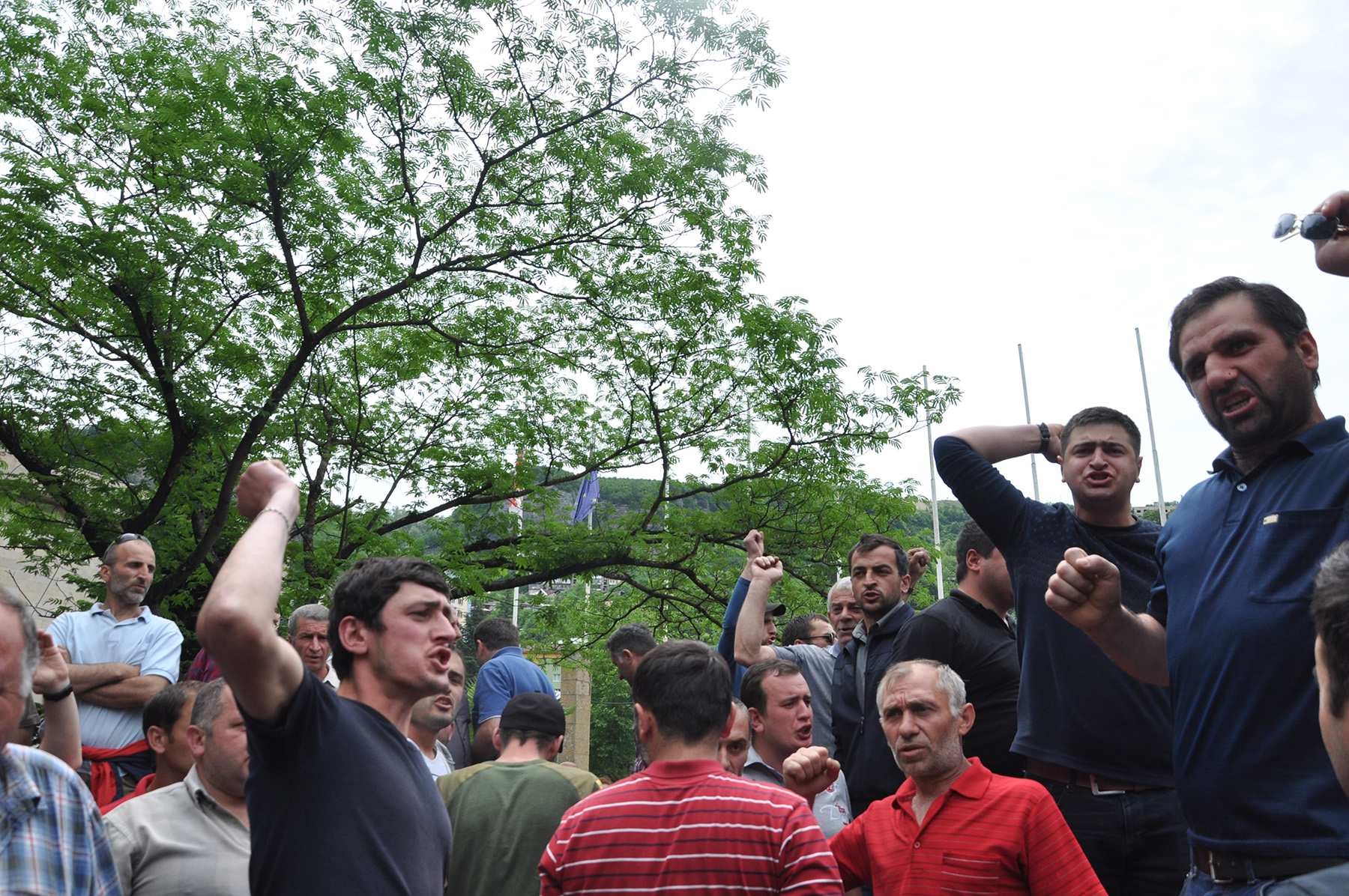
‘Salaries are quite high — for salaries alone, ₾3,175,000 ($1,140,000) is allocated every month’, Petriashvili said on 22 May. ‘I can’t say that I wasn’t expecting the strike, but still, I’m surprised.’
This sum, according to him, is shared among 3,116 workers, with 490 technical engineers receiving a monthly paycheck of ₾1,430 ($500) and other workers receiving ₾950 ($350).
A dangerous job
According to Chiatura’s First Trade Union, on 12 May, a miner was hospitalised after a rock hit him in the head while he was working at the Korokhneli Mine. Others were less fortunate.
In March 2018, 45-year-old Zaza Abramishvili died in the mines in Chiatura. He was digging a tunnel in the Shukruti mine when it collapsed.
Another fatality was reported in April 2017, in Chiatura’s ore processing plant, when a worker fell from a height and died.
Mine worker Gela Badzgaradze told OC Media that miners felt the company ‘doesn’t care about human life’.
‘The mine is full of smoke from the tractor that withdraws manganese from the tunnel; it runs on petrol. The smoke contains lead, which precipitates in our blood’, said Badzgaradze.
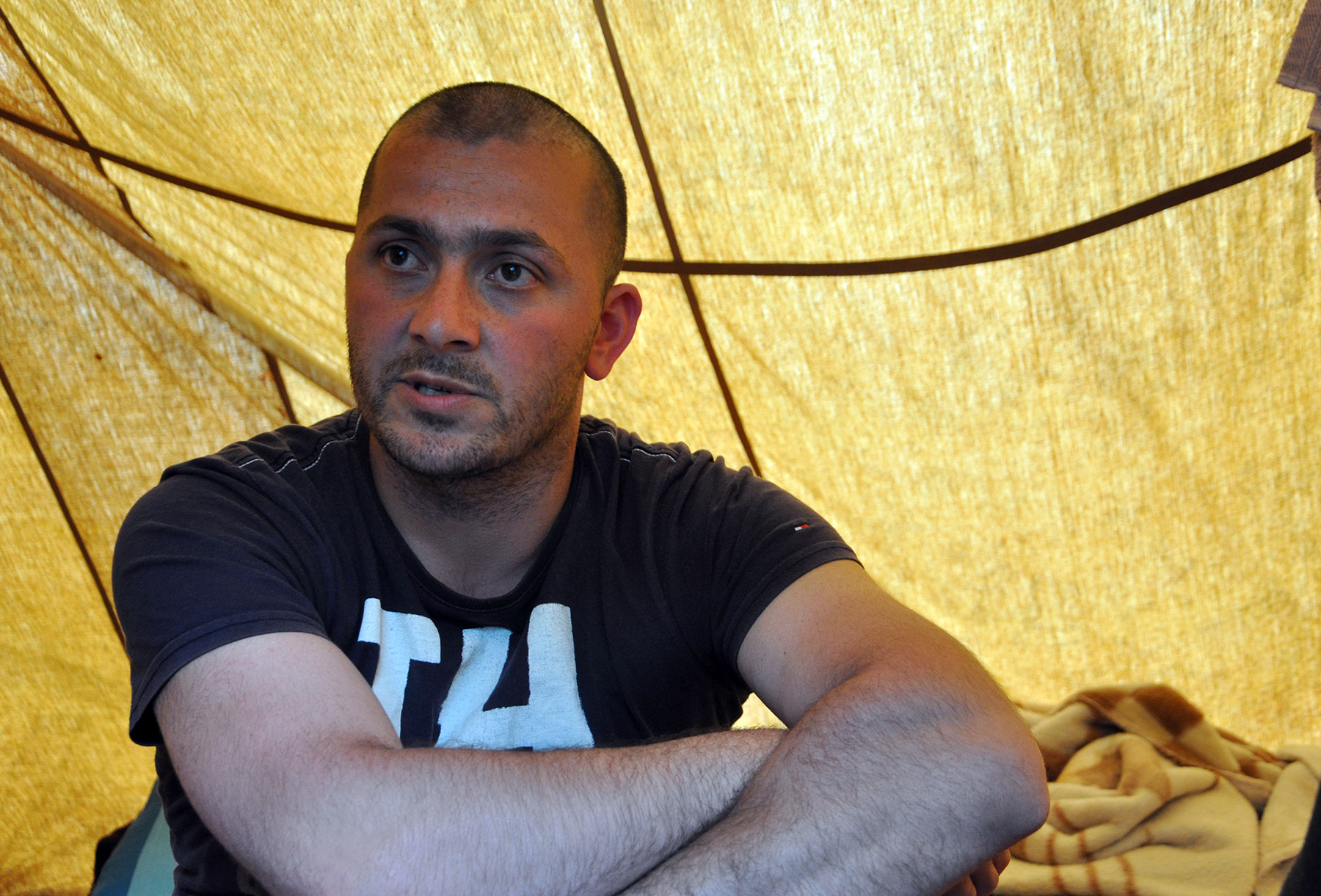
OC Media spoke with Beka Peradze, the head of the Labour Inspection Department at the Ministry of Health, Labour, and Social Affairs, which inspected the mine in December.
He said they identified labour safety violations related to collective and individual protection tools.
‘We warned the company about labour safety violations and provided them with a reasonable time to resolve these problems. In June we will check if they have been resolved’, said Peradze.
Miners have been demanding safe labour conditions and higher pay because of their hazardous working environment for years.
However, their protests have seldom been successful. Last summer, they announced they planned to go on strike demanding a 30% raise. The strike was called off after the company said the raise would be gradual, and at the moment they could only afford a 10% raise.
Workers have also been demanding for years that a collective contract be signed to legally regulate their relationship with the company. By signing it, they also pledged not to go on strike for the following three years.
As a result, the company had threatened the striking workers with legal consequences. On 22 May, the company said workers had refused to negotiate with them and that their participation in the strike allowed them to fire them or demand compensation for the damages inflicted.
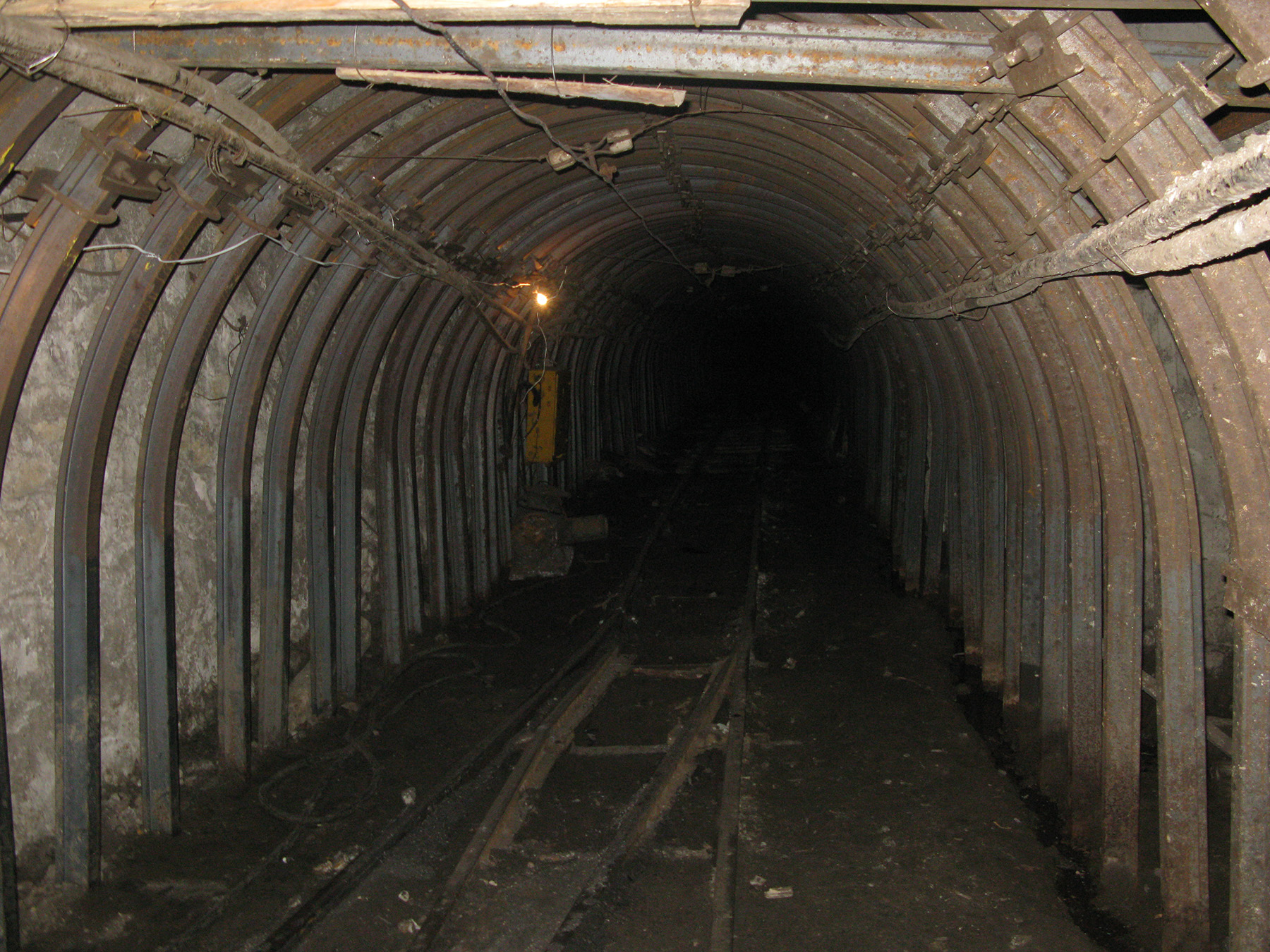
Kote Eristavi, the director of social policy programmes at rights group the Human Rights Education and Monitoring Centre (EMC), told OC Media that the warning served to intimidate workers.
‘I don’t think the company has the moral authority to sue miners who work in poor and unfair conditions that latter of which is recognised by the company itself’, Eristavi said.
An ‘environmental catastrophe’
It is not only those working in the mine whose health is at stake. One of the demands of the striking miners was that the company stop transporting extracted manganese in open-back lorries, which results in manganese dust being scattered in the streets.
‘I personally went to Chiatura and the situation is really catastrophic’, said Environmental Protection Minister Levan Davitashvili in parliament in early March.

According to environmental policy advocacy group the Green Alternative, prior to 2009, the company was operating without an environmental impact assessment or a license.
Once a permit was issued in 2009 the company’s compliance with the terms of the license were not inspected until 2012. Since then, the company has been fined for violating its terms numerous times.
Nevertheless, the company has been accused of neither paying the fines nor making any significant improvements to protect the environment.
According to official figures obtained by the Green Alternative, due to violations of its license terms, the company has continued to inflict ‘irreparable harm to the environment’ and ‘have a negative impact on the soil, water and air’, so much so that the estimated environmental damage amounted to ₾420 million ($150 million).
Seemingly unable to revoke the license of the biggest employer in the city, the government sought to have a special manager assigned.
In 2017, a court appointed Nikoloz Chikovani as special manager of the company. According to the Green Alternative, the ruling granted him the right not only to implement activities to fulfil the license and permit conditions but also the right ‘to run the enterprise completely independently and solely’.
Changes in the air?
Despite Chikovani’s appointment, not everyone believes that real changes have been made.
Nino Gujaraidze of the Green Alternative told OC Media that ‘what we see so far is only an aggravation of the situation’. She said that the company is focused on making the most of the resources it has whatever the environmental impact.
‘The scale of the area being mined has grown. The ground is not recultivated after mining and the process continues with violations … As for improvements, they are less visible and I suspect there are none’, said Gujaraidze.
‘Nothing has changed for miners either’, says EMC’s Kote Eristavi, ‘as they are still facing death, the air is still polluted, and the lorries they transport the manganese with continue to contaminate the town’.
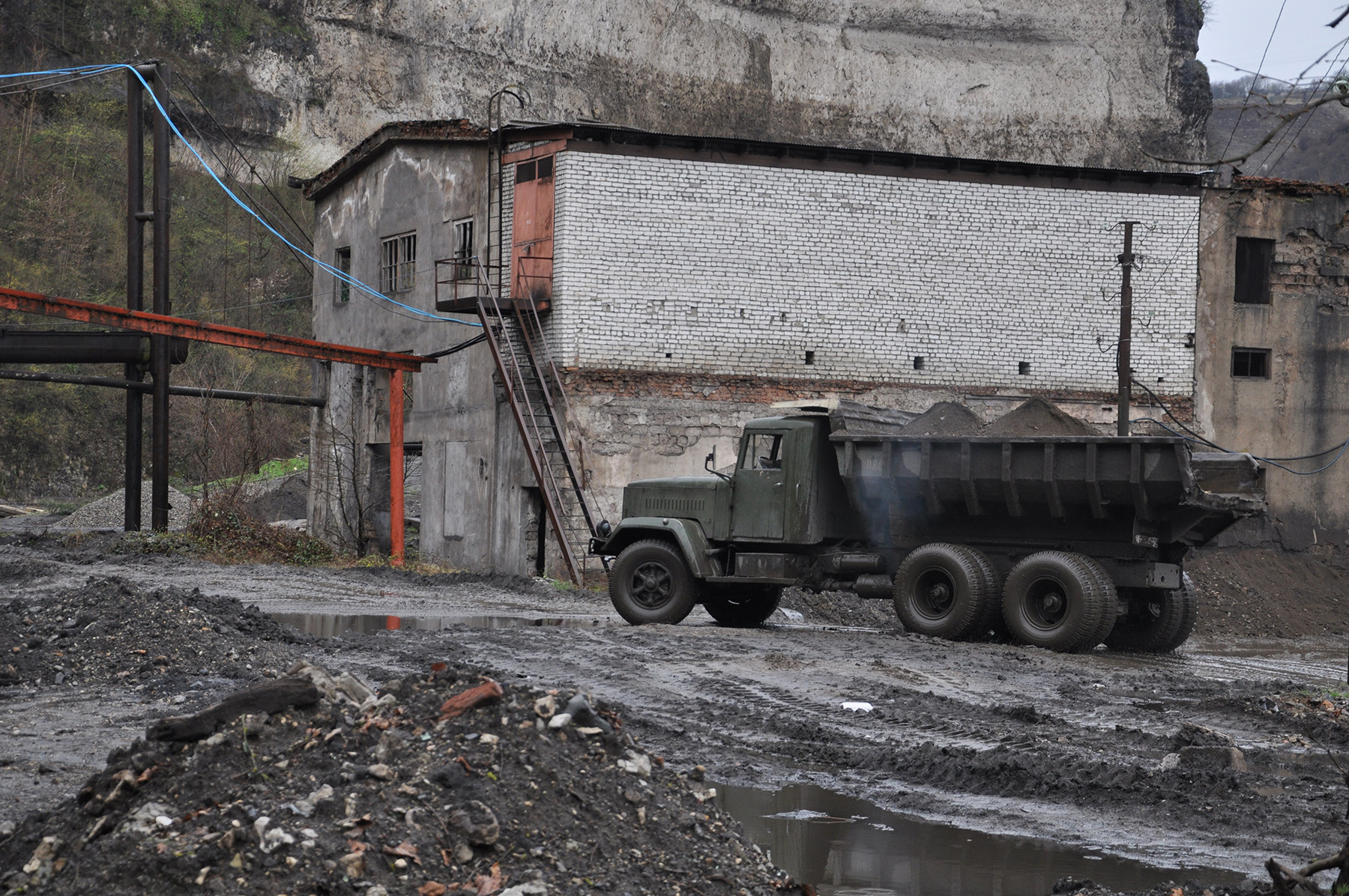
‘Everybody is neglecting the workers’ psycho-social health. The special regime workers are deprived of seeing their families for 15 days. They tell us how their wives take their children to them, to watch their fathers from the gates’, said Eristavi.
In a statement on 27 May, Georgian Manganese said they would stop transporting manganese by road altogether and would build a railway route instead. According to the company, a new processing plant established by the court-appointed manager has already been completed and is undergoing testing.
The new plant is meant to eliminate contamination of the river, as currently water used during manganese enrichment is pumped into the river together with the silt. Because of this, the river has turned black.
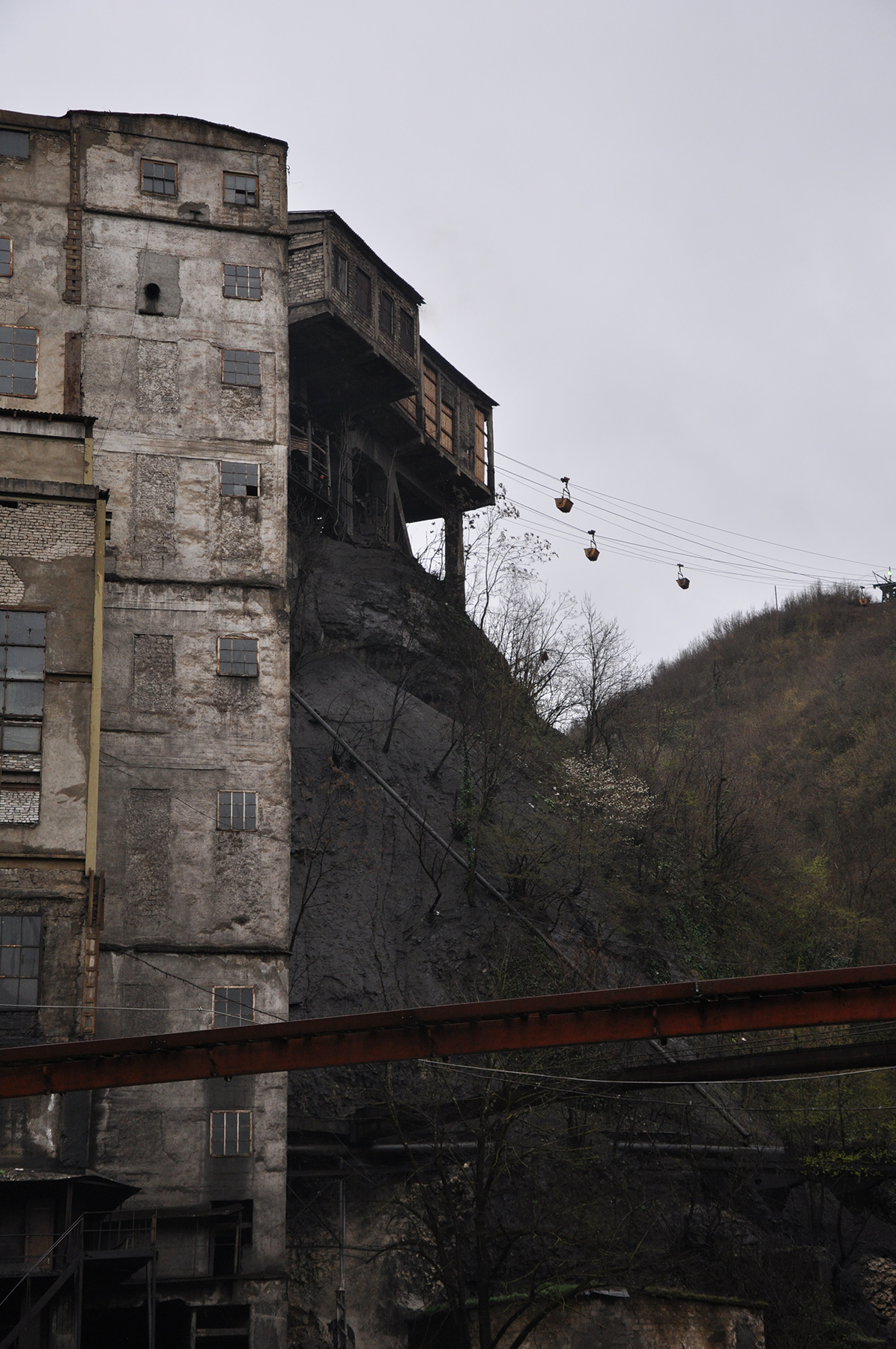
OC Media was unable to reach Nikoloz Chikovani for comment, however, in a video provided to us by Georgian Manganese, Chikovani called on workers to go back to work and to keep in mind the consequences of their ‘inadequate, inappropriate, and impossible demand’ of a 50% raise.
But the situation changed on 27 May, the 13th day of the strike, after thousands marched through the streets of Chiatura. Shops were closed down and school students took to the streets in solidarity with the striking miners.
The director of the enrichment plant resigned following the protest. According to Georgian Manganese, ‘he completely understands the current situation and says that because of it, resignation is the most optimal decision’.
That evening, an agreement was reached between the miners and the administration of Georgian Manganese that salaries would grow by 35%, but gradually.
The company also pledged to ‘improve and develop efficient preventive measures regarding labour conditions, safety, and healthcare’.
The statement said workers will also be able to choose their menus individually.
Most importantly, the fulfilment of the agreement is mandatory.
On Monday, Economy Minister Natia Turnava pledged that the ministry would ensure that the agreement was fulfilled.
